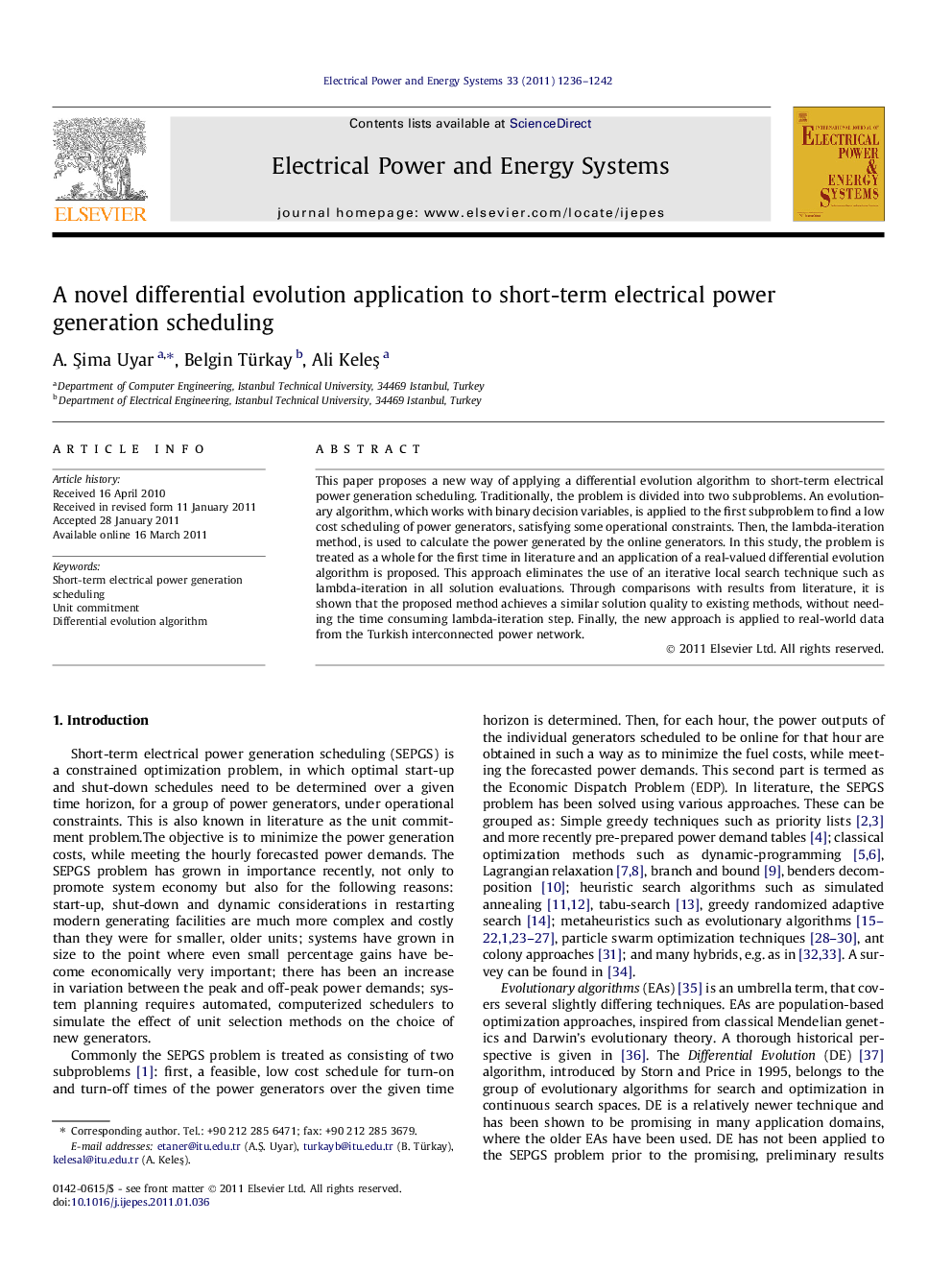| Article ID | Journal | Published Year | Pages | File Type |
|---|---|---|---|---|
| 400062 | International Journal of Electrical Power & Energy Systems | 2011 | 7 Pages |
This paper proposes a new way of applying a differential evolution algorithm to short-term electrical power generation scheduling. Traditionally, the problem is divided into two subproblems. An evolutionary algorithm, which works with binary decision variables, is applied to the first subproblem to find a low cost scheduling of power generators, satisfying some operational constraints. Then, the lambda-iteration method, is used to calculate the power generated by the online generators. In this study, the problem is treated as a whole for the first time in literature and an application of a real-valued differential evolution algorithm is proposed. This approach eliminates the use of an iterative local search technique such as lambda-iteration in all solution evaluations. Through comparisons with results from literature, it is shown that the proposed method achieves a similar solution quality to existing methods, without needing the time consuming lambda-iteration step. Finally, the new approach is applied to real-world data from the Turkish interconnected power network.
► Proposes a novel application of differential evolution to the problem. ► Treats problem as a whole: solves generator scheduling and economic dispatch together. ► Is scalable: performs well on both small and large problem instances. ► Provides solutions competitive with state-of-the-art approaches in literature.
